Atlanta Interfaith Broadcasters: 50 Years as Safe Haven
Atlanta Interfaith Broadcasters, now more commonly known as AIB-TV, was launched in 1969 with the aim of racial and religious bridge-building and shows no sign of abating.
Kevin Madigan is a senior reporter for the Atlanta Jewish Times.
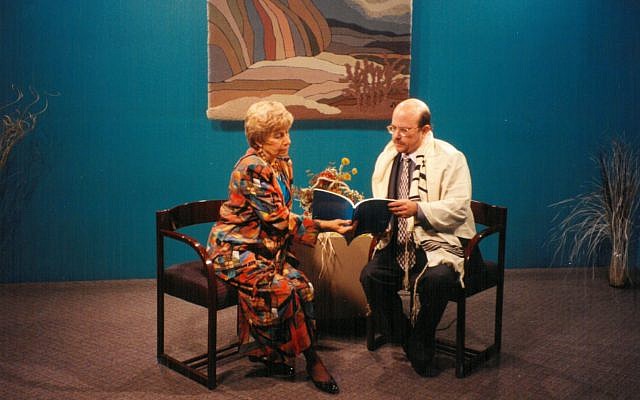
Few television networks can claim to have lasted 50 years. Atlanta Interfaith Broadcasters, now more commonly known as AIB-TV, was launched in 1969 with the aim of racial and religious bridge-building and shows no sign of abating. It celebrated its 50th anniversary May 23.
The concept was the brainchild of John Allen, a Presbyterian minister who established AIB with the assistance of fellow clergymen Walter Cook and Samuel Williams. The plan met with resistance in its infancy and was considered controversial, given the era.
The channel struggled to find distribution outside the Atlanta area in those early years and it wasn’t until 1981 that a cable deal secured rights to broadcast into the city’s suburbs. By the end of that decade, “the widened distribution and partnerships with faith-based organizations made AIB synonymous with quality faith-based and community programming in and around Atlanta,” according to an official statement.
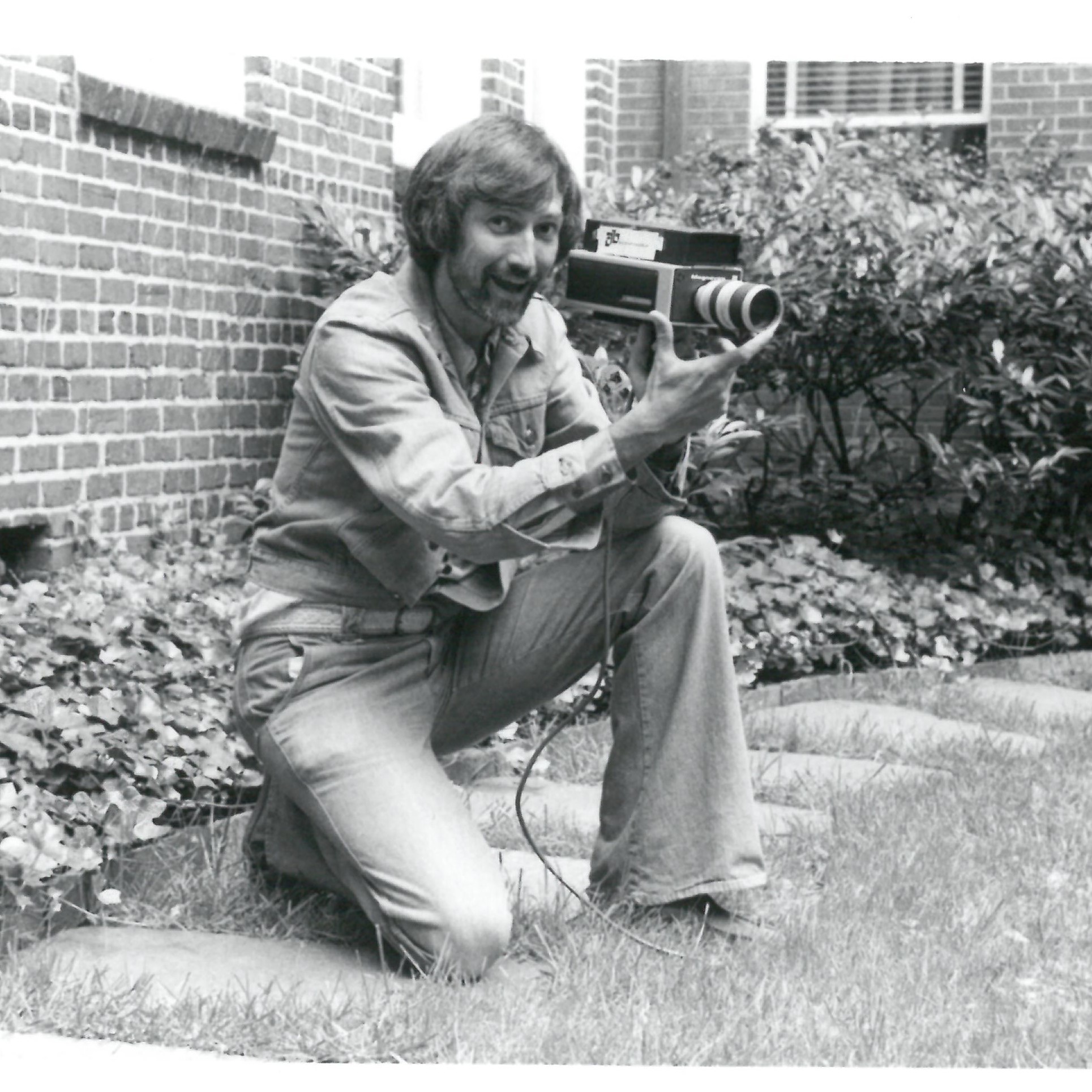
AIB reaches more than 2 million homes in Georgia and now occupies a large chunk of valuable Midtown property. A new studio was completed in 1999, the same year that founder Allen died.
His successor, Collie Burnett, has been at the helm ever since. “I think without his vision at the beginning, and his passion for bringing faiths together, there would not be any AIB today,” Burnett said in a phone interview when asked about Allen’s legacy. He describes AIB as “a safe haven for every major and minor faith. They can come here and talk about the things they are trying to do within their communities and feel supported.”
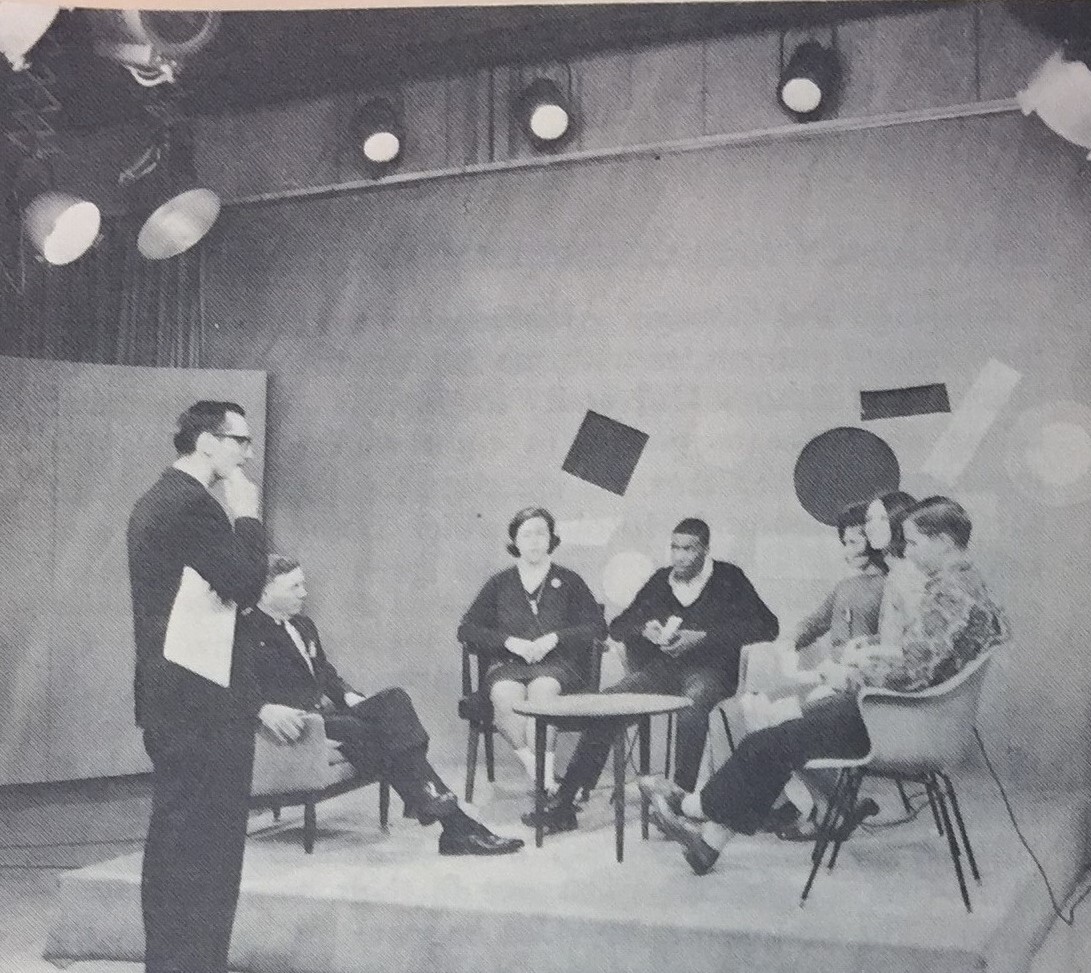
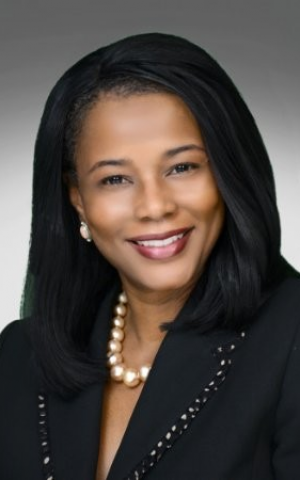
Burnett plans to step down as president and CEO at the end of 2019 and will be replaced by Audrey Daniels, a former banker who has served as AIB’s vice president of operations for the past three years. “I’m filling big shoes,” she said.
Program Content Manager Audrey Galex told the AJT the Jewish faith has been a consistent part of AIB’s schedule, with programs such as “Introduction to Judaism” on the beliefs, sacred texts, traditions and practices around Jewish mysticism and numerology, featuring Rabbi Ari Sollish of the Intown Jewish Academy.
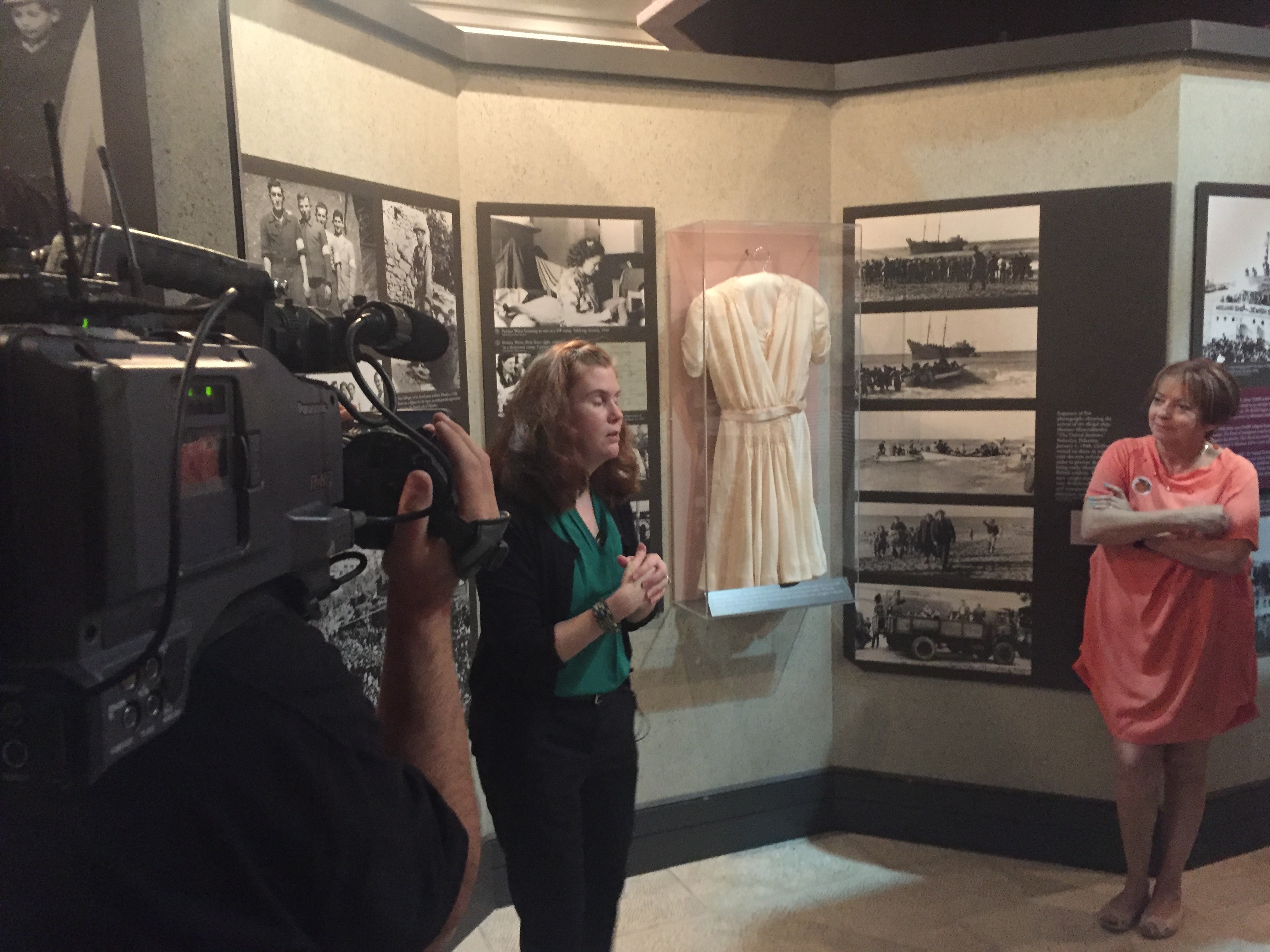
AIB also produces programs offering a historical perspective of Jewish life: “Jews in the South” showed a lecture by Janice Rothschild Blumberg on The Temple bombing of 1958 and another on the Leo Frank case by former archivist of The Breman Museum, Sandy Berman.
Then there is lifestyle programming such as “It Tastes Jewish” with kosher caterer Annette Marcus. The “AIB Presents” documentary series regularly carries Jewish content with programs on harvest festivals, burial rights, water rituals and fasting. The “Sacred Sounds & Spaces” series produced an episode on Young Israel of Toco Hills and the sound of the shofar. AIB aired the long-running talk show “Tikkun Olam” (repair the world) hosted by Jan Epstein and recorded the late Holocaust survivor Norbert Friedman reading his memoir, “Sun Rays at Midnight,” which is archived in the AIB “Living History” series. “All shed light on the past and present,” Galex said.
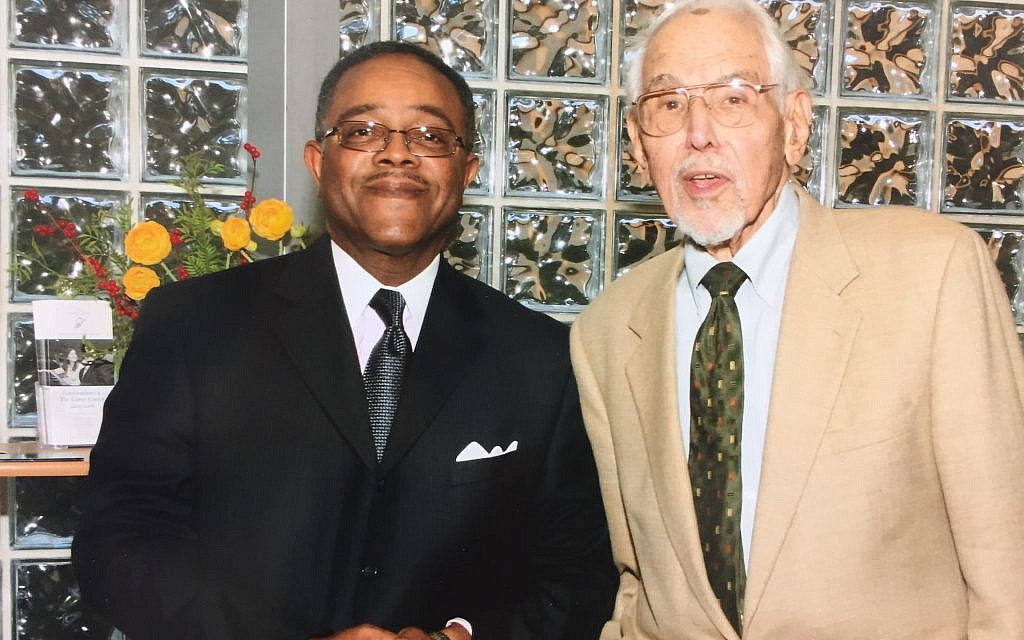
Coverage of Islam garnered backlash after Sept. 11, 2001. “There was some public discussion and an effort from some in the community to influence AIB’s position with calls to review and analyze the network’s support of the Islamic community,” Daniels said diplomatically, adding there were “over 100 negative communications received by the network.” In response, AIB developed a program called “Meet Your Muslim Neighbor,” allowing viewers to explore the tenets of Islam and the shared values and purpose in common with other faiths and peoples. “This was a time of uncertainty and AIB requested additional police surveillance for months following,” she said. The nonprofit was also hit hard by the 2008 recession and had difficulty meeting its budget projections.
“We are able to spend time on topics here locally that other networks may not be able to,” Daniels said, referring to original programs focused on gun violence and recidivism, among other issues. “A lot of things that are going on now are due to ignorance and a lack of information, and so when you can examine a faith, or one issue across faiths, you often see how similar we are without wearing those flags and tags and labels,” Daniels said.
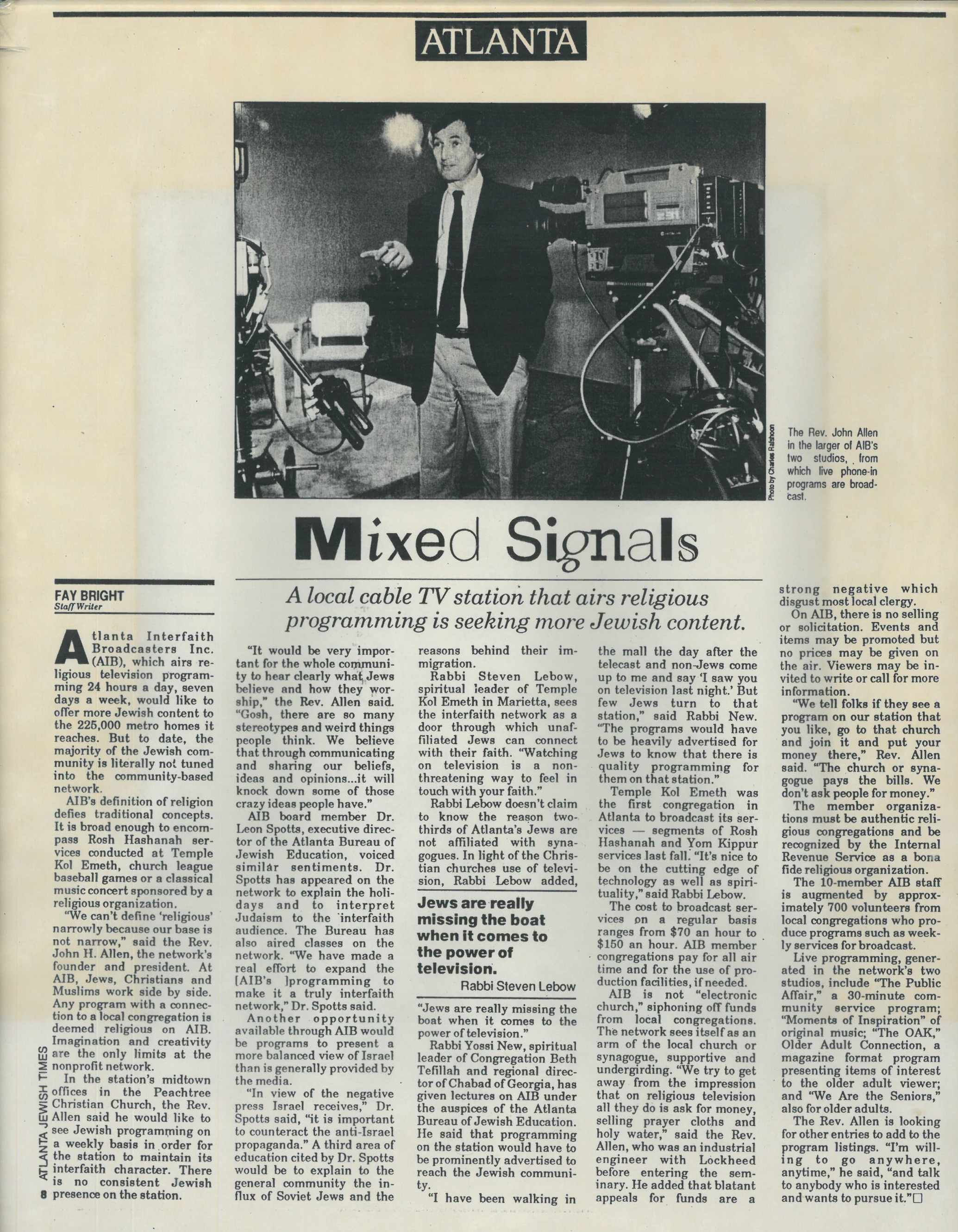
AIB has partnerships with other nonprofits such as United Way and The Carter Center “where we help them really expand their audience and (give them) the opportunity to share their mission with the Atlanta community.”
A 50th anniversary celebration took place May 23 at the Southwest Arts Center in Atlanta, hosted by Monica Pearson. It was recorded for subsequent broadcast on AIB.
- Kevin C. Madigan
- News
- Community
- Atlanta Interfaith Broadcasters
- AIB-TV
- John Allen
- Collie Burnett
- Audrey Daniels
- Audrey Galex
- Rabbi Ari Sollish
- Intown Jewish Academy
- Janice Rothschild Blumberg
- sandy berman
- Annette Marcus
- Young Israel of Toco Hills
- Jan Epstein
- Norbert Friedman
- Southwest Arts Center
- Monica Pearson
- Interfaith Relations
- The William Breman Jewish Heritage Museum



comments